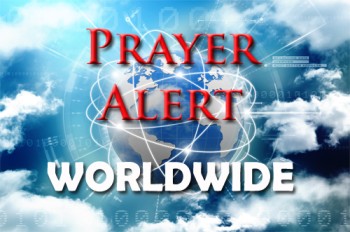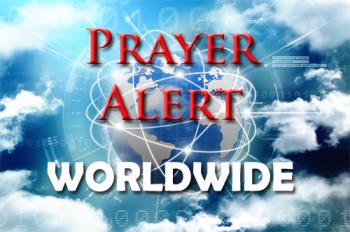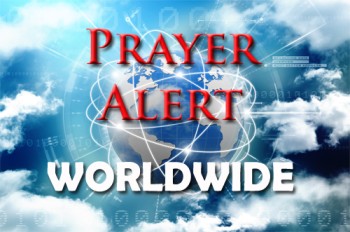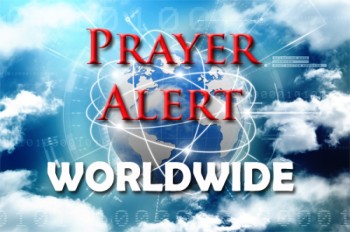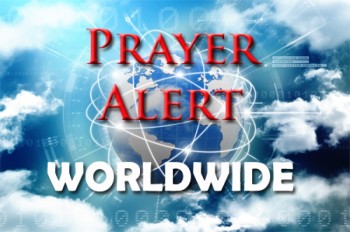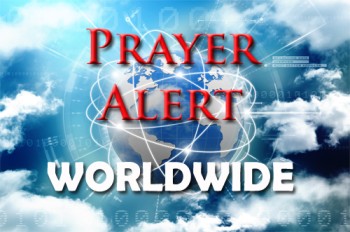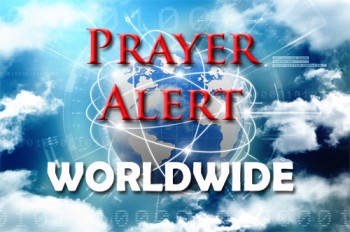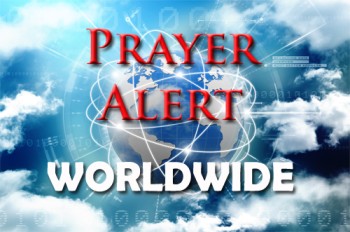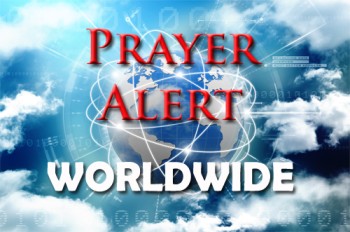Displaying items by tag: Africa
Guinea: human rights activists disappeared a year ago
A full year has passed since Guinean activists Oumar Sylla (known as Foniké Menguè) and Mamadou Billo Bah were forcibly disappeared on 9 July 2024, with no word on their whereabouts. Arrested by armed men in Conakry and reportedly taken to the Loos archipelago, the two members of the now-banned National Front for the Defence of the Constitution (FNDC) are believed to have endured torture and secret detention. Their case reflects a troubling rise in forced disappearances under Guinea’s ruling junta, which human rights organisations describe as a ‘climate of terror.’ Other victims include civil society leader Abdoul Sacko - abducted, tortured, and abandoned in the bush - and lawyer Mohamed Traoré, also abducted and abused. Despite initial promises of investigations, authorities have remained silent. Amnesty International has called for immediate and transparent inquiries, but families continue to wait in anguish. As hope fades, the international community is urged to demand accountability for Guinea’s growing list of enforced disappearances.
Zimbabwe: new IOC president faces high expectations and big challenges
Olympic swimming champion Kirsty Coventry has been inaugurated as the tenth president of the International Olympic Committee (IOC), becoming the first woman, first African, and youngest person to hold the role. Her appointment has ignited pride in Zimbabwe and hope for broader global inclusion, particularly for Africa and the Middle East. Coventry has described the Olympics as a platform for inspiration and hope, while also vowing to lead on complex issues. One pressing concern is what to do about transgender athletes, especially after recent controversies. She has pledged to create a taskforce involving scientists and federations to revisit gender eligibility policies, prioritising fairness in the female category. Coventry’s first major decision was to pause the 2036 Games bidding process, signaling a desire for transparency and reform. Yet she faces challenges ahead, including rising global tensions and pressure to ensure the Olympic movement remains politically neutral while promoting unity. Her leadership will be tested by both internal reform and external geopolitical strife.
Sudan: devastating attack on hospital
A brutal attack on Al Mujlad Hospital in West Kordofan has left over forty dead, including children and medical staff, in one of the deadliest assaults on a medical facility since the war began in April 2023. WHO chief Dr Tedros Ghebreyesus condemned the attack as ‘appalling’; it is not yet clear whether the army or the RSF was responsible. The fighting between the two sides has deepened a crisis which has left millions displaced and malnourished. Al Mujlad was the area’s only functioning hospital, and its loss intensifies the plight of communities already grappling with disease, famine, and displacement. Humanitarian organisations have warned that children bear the greatest toll, with rising malnutrition and exposure to exploitation. As Sudan’s war enters its third year, the call from global health leaders is clear: the targeting of hospitals and health workers must end immediately to prevent further humanitarian catastrophe.
DR Congo: Catholics celebrate as Pope beatifies local customs official
On 15 June Catholics in Goma and across the Congo rejoiced as Floribèrt Bwana Chui Bin Kositi, a Congolese customs official, was beatified by Pope Leo XIV in Rome. Kositi was kidnapped and killed in 2007 after bravely refusing a bribe to allow rancid rice from Rwanda into the country - food which would have harmed vulnerable citizens. At just 26, he chose integrity over self-preservation, knowing the dangers of rejecting corruption. His family and community marked this occasion with pride, viewing his recognition as a powerful symbol of justice and moral courage. Local diocese leaders and churchgoers held prayer sessions and celebrations in Goma, where posters and commemorative cloths featuring his image honoured his legacy. Célestin Kanyabiriri, who led the beatification events locally, called Kositi’s example a divine call for financial honesty and spiritual integrity. Many regard him as a national hero and a martyr who upheld truth even to death.
Rwanda and DR Congo reach draft peace agreement after decades of conflict
A draft peace agreement has been reached between Rwanda and the Democratic Republic of Congo, aiming to end decades of deadly conflict in eastern DR Congo. Mediated by the US and Qatar, the deal outlines disengagement, disarmament, and conditional integration of armed groups, including the M23 rebels — whose recent territorial gains have displaced hundreds of thousands and cost many lives. Rwanda denies backing the M23, while accusing DR Congo of supporting the FDLR, a militia linked to the 1994 Rwandan genocide. The deal includes provisions for a joint security mechanism to prevent future hostilities and could pave the way for substantial Western investment in the mineral-rich region. However, significant uncertainties remain: Will the M23 fully withdraw? Will Rwanda acknowledge its troop presence and pull back? Can the FDLR be disarmed effectively this time? A formal signing is expected next week, witnessed by US Secretary of State Marco Rubio. Observers are cautiously hopeful, recalling past failed accords. True peace will require political will, accountability, and lasting humanitarian access for displaced civilians.
Africa / Philippines: 87,000 Bibles given to disabled children
A new partnership between CURE International and Biblica is set to distribute over 87,000 Bibles in 22 languages to families receiving free surgical care at children’s hospitals across Africa and the Philippines. These hospitals, run by CURE, offer operations for conditions like spina bifida and hydrocephalus. The initiative brings physical healing and spiritual hope, rooted in CURE’s founding mission inspired by Luke 9:2 - to preach the Kingdom of God and heal the sick. CURE has performed over 330,000 surgeries and shared the Gospel with over 2.1 million people since 1996. Biblica’s role is to ensure Scripture is available in the heart languages of the patients. The collaboration addresses deep spiritual and cultural challenges, including widespread beliefs in curses and witchcraft surrounding disability. Through intentional ministry, Bible distribution, and community connections with local pastors, CURE is seeing lives transformed as parents witness healing and turn to faith. This $500,000 effort is a striking example of Kingdom collaboration bringing the light of Christ to the most vulnerable.
Togo: protests after rule changes allowing president to rule indefinitely
Faure Gnassingbé, Togo’s president, faces rising unrest after constitutional changes that could extend his rule indefinitely. Recent protests in the capital, Lomé, were met with arrests and alleged mistreatment of demonstrators. Gnassingbé, in power since 2005, was recently sworn in as president of the Council of Ministers - an influential role without term limits. Critics call this a ‘constitutional coup’. About forty of the arrested protesters have been released, but at least 25 remain detained. Government officials have defended the arrests as necessary to uphold state institutions. However, a coalition of political groups has demanded not only the release of all prisoners but also an end to Gnassingbé’s regime, which they describe as repressive after two decades in power. Protests are rare in Togo, where demonstrations were banned in 2022 after a deadly attack.
Burkina Faso: Africa’s youngest leader
Captain Ibrahim Traore, Africa’s youngest leader at 37, is gaining attention across the continent for his defiant rhetoric of pan-Africanism, anti-colonialism, and youth empowerment. Since seizing power in a 2022 coup, Traore has distanced Burkina Faso from France and ECOWAS, aligning instead with fellow coup-led nations Niger and Mali. His image, recently plastered over Russian state media when he visited Moscow, resonates with African youth disillusioned with older leadership and stalled democracies. However, behind the populist appeal, the country’s security has deteriorated sharply. Attacks from both government forces and jihadists have killed over 7,200 people in the past year - more than double the pre-coup toll. With 60% of the country beyond state control, millions are displaced or need aid. Yet for many, Traore’s revolutionary language reflects real frustrations with Western influence and entrenched corruption, making him a symbol of resistance - however flawed.
Sudan: new wave of refugees pour into Chad after RSF atrocities
Over 18,500 Sudanese refugees have fled into eastern Chad in the past two weeks, following devastating attacks on the Zamzam displacement camp and the city of al-Fasher in Darfur. The 11 April assault by Sudan’s paramilitary Rapid Support Forces (RSF) left at least 400 dead in Zamzam after months of starvation and siege. Eyewitnesses report widespread atrocities including executions, torture, and sexual violence. The RSF destroyed the camp’s only medical centre, killing nine aid workers, and burned large sections of the camp. Once home to 500,000 people, Zamzam is now nearly abandoned. Many fleeing refugees, including children and pregnant women, are severely malnourished and traumatised. Chad, already hosting 1.3 million refugees - nearly 800,000 from Sudan - is overwhelmed and struggling to provide adequate shelter, food, and medical care. UNHCR officials, fearing more suffering ahead as the humanitarian situation deteriorates rapidly, are calling for urgent international assistance and intervention.
Rwanda: talks with USA about receiving immigrants
Rwanda has confirmed it is in early discussions with the Trump administration about potentially receiving immigrants deported from the USA. Foreign minister Olivier Nduhungirehe stated the talks are ongoing but not finalised. The move follows US efforts to find foreign partners for deportations as part of Trump’s expansive immigration enforcement strategy, which includes invoking the 1798 Alien Enemies Act - granting the president wartime authority to deport noncitizens without due process. In April, the USA deported an Iraqi man accused of IS ties to Rwanda. Reports also suggest that migrants with criminal records might be sent to Rwanda or Libya. In 2022 Rwanda had agreed to accept asylum-seekers from the UK, but Keir Starmer’s government scrapped the deal due to legal and human rights concerns. A spokesperson for UNHCR has said: ‘People fleeing war, conflict and persecution deserve compassion and empathy. They should not be traded like commodities and transferred abroad for processing.’
